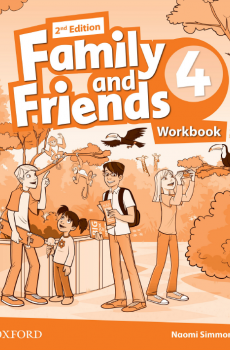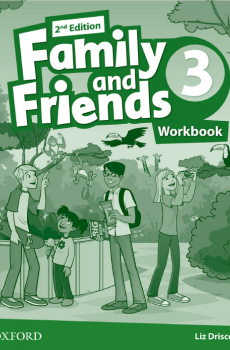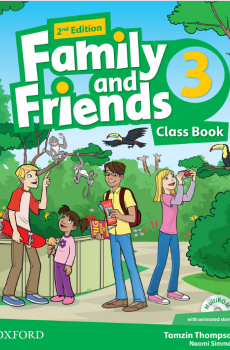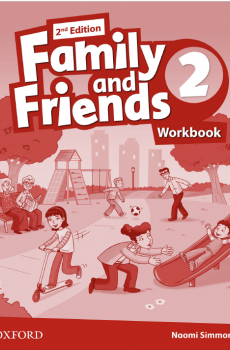For Every Music Lover
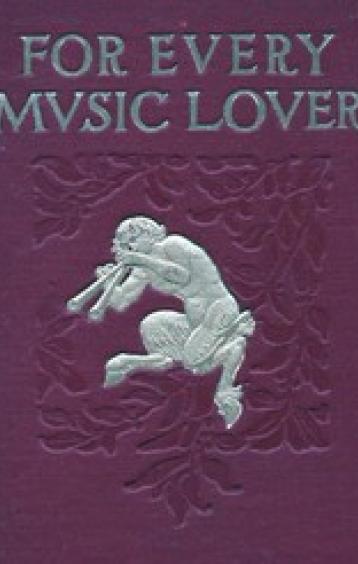
For Every Music Lover
Đăng nhập để đọc sách và tải về file pdf miễn phí
| Nhà xuất bản | Chưa rõ |
|---|---|
| Nhà xuất bản sách tiếp cận | Public domain |
| Năm xuất bản | 2006 |
| Coppy right | Chưa rõ |
Contents
Preface
How we can approach knowledge of music. Mistaken isolation of the art. Those who belong to the privileged class. Music, as well as religion, meant for all. Business of its ministers and teachers. Promise of the twentieth century. Fruitage of our own free soil. American world-view. Purpose of volume.
The Origin and Function of Music
Story of music affording knowledge of man's inner life. Mythology and legendary lore. Emerson's dualism. Music a mirror. Ruskin and art. Beethoven's lofty revelation. The real thing of Schopenhauer. Views of Carlyle, Wagner and Mazzini. Raw materials. Craving for sympathy in artistic type. Evolution of tone-language. French writer of 1835. Prince of Waldthurn, in 1690. Spencer's theory. Controversy and answer. Music of primeval man and early civilizations. The Vedas. Hebrew scriptures. Basis of scientific laws. Church ritual. Folk-music. Influence of crusades. Modern music architect of its own fortunes. Present musical vocabulary and literature. Counsel of Pythagoras. What Plato taught. Euripides on song. Auerbach. Martin Luther. Napoleon Bonaparte. Bain and Dr. Marx. Shakespeare, in Merchant of Venice. Wagner's unspoiled humanity. Tolstoi in art.
Blunders in Music Study
Voice from the unseen. Perverted soul. Normal instincts. Genius and talent. Æsthetic tastes. Musical sound and rhythmic motion. Average child. Frequent blunders. Appeal to intellect. Teacher with strong personality. Experimenting with beginners. Legal protection. Vienna musician. Class instruction. French solfège. English tonic sol-fa. Mrs. John Spencer Curwen. Rev. John Curwen. Time a mental science. Musical perception of the blind. Music in public schools. Phillips Brooks on school song. Compulsory study. Socrates. Mirabeau. Schumann on brilliancy. Unrighteous mammon of technique. Soul of music. Neglect of ensemble work. As to accompaniments. Underlying principles. Hearing good music. Going abroad. Wagner's hero. A plumed knight wanted.
The Musical Education That Educates
Symmetrical development. Well-rounded musician. Well-balanced individual. Profits proportionate to investment. Living force. What Goethe said. Rich harvest. Aristotle on command over mind. Music study many-sided. Madox-Brown on art. Mabie on beauty. Practical forces in shaping character, purifying taste and elevating standards. Master-works. Human voice as music teacher. Scientific methods of study. Both art and science. Mental discipline. Stephen A. Emory. Huxley on education.
How to Interpret Music
College professors on criticism and interpretation. External and technical forms. Distrusting impressions. Trampling on God-given intuitions. Throb and thrill of great art. Insight requisite for interpretation. Living with masterpieces. Three souls of Browning. Dr. Corson. Every faculty alive. Vital knowledge. Musical imagination. Technical proficiency. Head, hand and physical forces. In service of lofty ideal. Musical art work. Theme. Unfolding. Climax. Labor of composition. Mind of genius. Elementary laws. Tonal language. Karl Formes and operatic aspirant. Motto of Leschetitzky. Marks of expression. Adolph Kullak. Hans von Bülow. Pulse of music. Memory. Ruskin's fatal faults.
How to Listen to Music
Listening an art. Painting completed whole. Music passing panorama. Not translatable into words. To follow, even anticipate composer. Bach's absolute knowledge. Fire of Prometheus. Inner sanctuary of art. Science of acoustics. Prime elements. Dr. Marx and Helmholtz. Motive. Beethoven's fifth symphony. Phrase. Period. Simple melody. "God Save the King." Our "America." Masters of counterpoint. Bach's fugues. Monophony and polyphony. Classical and romantic. Heretic and hero. Hadow on musical laws. Form the manifestation of these. Good music versus ragtime. Dr. Corson on spiritual appeal.
The Piano and Piano Players
Pythagoras and musical intervals. Pan pipes. Portable organs. Monochords with keys. Guido d'Arezzo. Clavier type. Virginal in Elizabethan age. Early clavier masters. First woman court clavier player. Scarlatti and Bach. True art of clavier-playing. Sonata form. Where Haydn gained much. Mozart and Clementi. Pianoforte and improvements. Viennese school. Clementi school. Giant on lofty heights. Oscar Bie on Beethoven. Golden age of pianoforte. Piano composers and virtuosi, from Weber to the present time. Teachers and performers often corrupters of music.
The Poetry and Leadership of Chopin
Rubinstein on Polish patriot and tone-poet who explored harmonic vastness of pianoforte. Like exquisitely constructed sounding-board. Enriched and spiritualized the pianoforte for all time. Universal rather than individual experiences. National tonality. Zwyny and Elsner. Intimate acquaintance with Bach. Prince Charming of the piano. Liszt on Chopin. Raphael of music. Playing and teaching. Tempo rubato. Compositions. Schumann's words. Oscar Bie.
Violins and Violinists—Fact and Fable
Volker the fiddler. Nibelungen lay. Videl of days of chivalry. Bow fashioned like sword. Hagen of Tronje. Wilhelm Jordan, in "Sigfridsage." Henrietta Sontag and the coming Paganini. Wagner's Volker-Wilhelmj at Bayreuth. Magic fiddles and wonderworking fiddlers. Grimm's Fairy Tales. Norse folk-lore. English nursery rhymes. Crickets as fiddlers. Progenitors of violin. The violin of Queen Elizabeth and her age. Shakespeare in Twelfth Night. Household of Charles II. Butler, in Hudibras. Viola d'amore in Milwaukee, Wis. Brescian and Cremonese violin-makers. Early violinists. Value and history of some violins. Strings and bow. Violin virtuosi from Corelli to our day. Mad rush for technique.
Queens of Song
Florentine lady, Vittoria Archilei. Embryo opera of Cavalieri. Peri's "Eurydice." Euterpe. Marthe le Rochois and Lully's operas. Rival queens in London. Steele, in "Tattler." Second pair of rivals, Cuzzoni and Faustina. Master Handel. Germany's earliest queen of song. Frederick the Great and German singers. Mrs. Billington. Haydn and Sir Joshua Reynold's St. Cecilia. Mozart's operas introduced into England. Catalani. Pasta. Sontag. Schröder-Devrient and Goethe's "Erl King." Malibran a dazzling Meteor. Another daughter of Manuel del Popolo Garcia. Marchesi, Grisi and Mario. Manuel Garcia and the Swedish Nightingale. Other Swedish songstresses. Patti. Queens of song pass in review. Two Wagner interpreters. A Valkyrie's horse. A word for American girls.
The Opera and Its Reformers
Evolution of drama. At the altar of Dionysus. Greek poetry and music. Aristotle on Greek stage-plays. Æschylus and Sophocles. Euripides. Words, music and scenic effect. Lenæan theatre exhibitions. More costly than Peloponnesian war. Roman dominion. Primitive Christian church. St. Augustine. Mystery, miracle, morality and passion plays. Strolling histriones, etc. Florence "Academy." Vincenzo Galilei. Monody. Polyphonic music. Emilio del Cavalieri. Vittorio Archilei. Music of Greeks recovered. Peri. Monteverde and his work. First opera house. Alessandro Scarlatti. Troubadours. Lully, Rameau and French opera. Purcell, Handel and music in England. Gluck, the regenerator. German opera. Mozart, Beethoven, Weber and Wagner. What came from Bach, Chopin and Berlioz. Rossini's melodies. Wagner's influence. Verdi, the grand old man.
Certain Famous Oratorios
Neri's oratory. Dramatized versions of biblical stories. Palestrina and harmonies of celestial Jerusalem. Religious dramas of Roswitha. Laura Guidiccioni's first oratorio text. Music by Cavalieri. At Santa Maria della Vallicella. Orchestra behind the scene. Description. Carissimi, "father of oratorio and cantata." Alessandro Scarlatti. Another Alessandro. Dr. Parry's opinion. "San Giovanni Battista" and famous air. Tradition about Stradella. What recent writers say. Handel and the "Messiah." Bach and the "Passion Music." "The Creation" and Haydn. Beethoven's "Mount of Olives." Mendelssohn, in "St. Paul" and "Elijah." Oratorios of Liszt and Gounod. Next step in the evolution.
Symphony and Symphonic Poem
That adventurous spirit, Monteverde. Charm in exploring resources of instrumentation. Operatic overture. Forge of genius. Dance of obscure origin. Craving for individual expression. Touch of authority by Corelli. Cardinal Ottoboni's palace. Symphony, a sonata for orchestra. Purcell, Scarlatti, Sammartini and the Bachs. Monophonic style. Contrasting movements. German critic on early sonata. Further explanation. Meaning of symphony. Haydn with Esterhazy orchestra. Father of the symphony. Mozart. Beethoven. Schubert. Schumann. Mendelssohn. Berlioz, the musical heretic. His "fixed idea" and programme music. Liszt and symphonic poem. Saint-Saëns. Tschaikowsky and Russian spirit. Sinding. Grieg. Gade. Brahms and absolute music.






